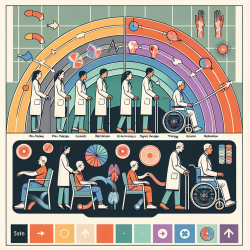Understanding Local Concepts of Mental Illness for Improved Interventions
The research article "Madness or sadness? Local concepts of mental illness in four conflict-affected African communities" by Ventevogel et al. provides valuable insights into the local conceptualizations of mental illness in Burundi, South Sudan, and the Democratic Republic of the Congo. This understanding is crucial for practitioners aiming to improve mental health outcomes in these regions, particularly for children affected by conflict.
Key Findings and Their Implications
The study identifies localized syndromes that resemble both psychotic and nonpsychotic mental disorders, highlighting the importance of cultural context in defining mental illness. For practitioners, this means that interventions should be tailored to align with local beliefs and practices. For instance, while psychotic disorders are often seen as abnormalities requiring treatment, conditions resembling depression or anxiety are viewed as non-medical issues, best addressed through community support.
Data-Driven Strategies for Practitioners
To effectively integrate these findings into practice, practitioners should consider the following strategies:
- Empower Local Support Systems: Focus on strengthening existing social support networks within communities to address nonpsychotic disorders. This approach not only respects local customs but also enhances the sustainability of mental health interventions.
- Collaborate with Traditional Healers: Engage with traditional healers and community leaders to gain trust and facilitate the acceptance of mental health services. This collaboration can bridge the gap between traditional beliefs and modern mental health practices.
- Incorporate Cultural Sensitivity in Training: Train mental health practitioners to understand and respect local idioms of distress and health-seeking behaviors. This cultural competence is essential for effective communication and intervention.
Encouraging Further Research
While the study provides a foundational understanding of local mental health concepts, there is a need for further research to explore the nuances of these syndromes and their implications for mental health interventions. Practitioners are encouraged to conduct ethnographic studies to deepen their understanding and refine intervention strategies.
Conclusion
Integrating local concepts of mental illness into mental health interventions is vital for improving outcomes in conflict-affected communities. By leveraging cultural insights and empowering local support systems, practitioners can create more effective and sustainable mental health programs.
To read the original research paper, please follow this link: Madness or sadness? Local concepts of mental illness in four conflict-affected African communities.










